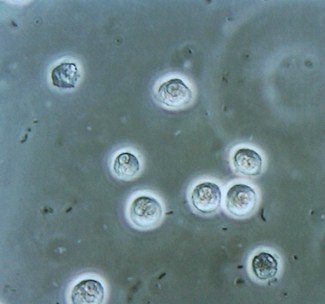What is Pyuria?

This is a condition where there is pus or too many white blood cells in the urine. There are many explanations why a higher than normal concentration of white blood cells can take place. The reason for pyuria can be many and vastly different.
This condition is not a diagnosis. It is a finding of the lab in numerous diseases, most normally urinary tract infections. It usually points to bacteria having attacked the lower or upper urinary tract causing an inflammatory response of the lining of the urinary tract in that location.
Pyuria Symptoms
Pyuria can often be found in the lack of any infection and is frequently asymptomatic or without symptoms. When pyruia is present without the presence of bacteria, its cause is not clear, although “silent” or unknown kidney infections can be suspected as well as renal stones, tuberculosis, or cancer.
Symptoms which usually cause the individual to see their physician include:
- Cloudy urine
- Foul-smelling urine
- Frequent urgent need to urinate
- Discomfort on urinating
- Fever
Pyuria Causes
There are many causes for pus in the urine. Sexually transmitted infectious disease such as chlamydia or gonorrhea can cause white cells in the urine. Other infections, such as viral infections, mycoplasma, anaerobic bacteria, fastidious bacteria, fungal infections or even tuberculosis can give white cells in the urine. For males, an infection of the prostate can cause pus in the urine.
There are also many noninfectious cause of pyuria. Also medical conditions which are being treated with glucocorticoid medications can also cause pus or high white blood cells. There may exsist some mechanical annoyance from trauma such as kidney stones can be a cause. Tumors either benign or malignant can also cause white cells in the urine.
Pregnancy as well as advanced age can also cause this situation to be seen in the urine.
White cells in the urine can also be an indication of inflammatory conditions higher up in the urinary system, such as an underlying problem in the kidneys.
http://www.Symptoms-Causes-treatment.blogspot.com detect diseases at an early stage symptoms, and find out the causes and treatments best suited.
In order to diagnose high white count, the most common test is the urinalysis. The physician will also perform a physical exam. Bladder infection or cystitis can normally be diagnosed with the patient’s history and symptoms.
Since there are so many causes of pyuria, the physician may not completely rely on this test for complete diagnosis. While it is an indication that something is wrong, physicians may need to perform other tests to determine what the cause of pyuria really means.
Pyuria Treatment
To diagnose high white blood count or pus in the urine, the normal test is the urinalysis. Individuals give a urine sample simply by urinating in a sterile cup or other device for collection. Then the lab evaluates it in several ways. If they find the white blood cell count to be very high, the lab then informs the doctor who will possibly order further tests.
With females, the method of collecting this specimen needs to be done carefully to ensure that the specimen is not contaminated with vaginal secretions. Careful collection as well as the timing of the specimens are important once infections are eliminate from the possible diagnosis, other causes of pus in the urine will need to be investigated.
The microscopic exam of the urine will detect exactly how numerous the white cells are. A urine culture can also be performed to determine whether there is a bacterial infection and identify the causative organism.
Treatment of high white cells or pus in the urine depends on the underlying cause. If it is any infectious disease of the urinary tract, antibiotics usually are prescribed including:
- Norfloxacin sold as Noroxin
- Ampicillin sold as Principen
- Minocycline sold as Minocin
- Levofloxacin sold as Levaquin
- Ciprofloxacin sold as Cipro
- Amoxicillin sold as Augmentin
- Doxycycline sold as Adoxa